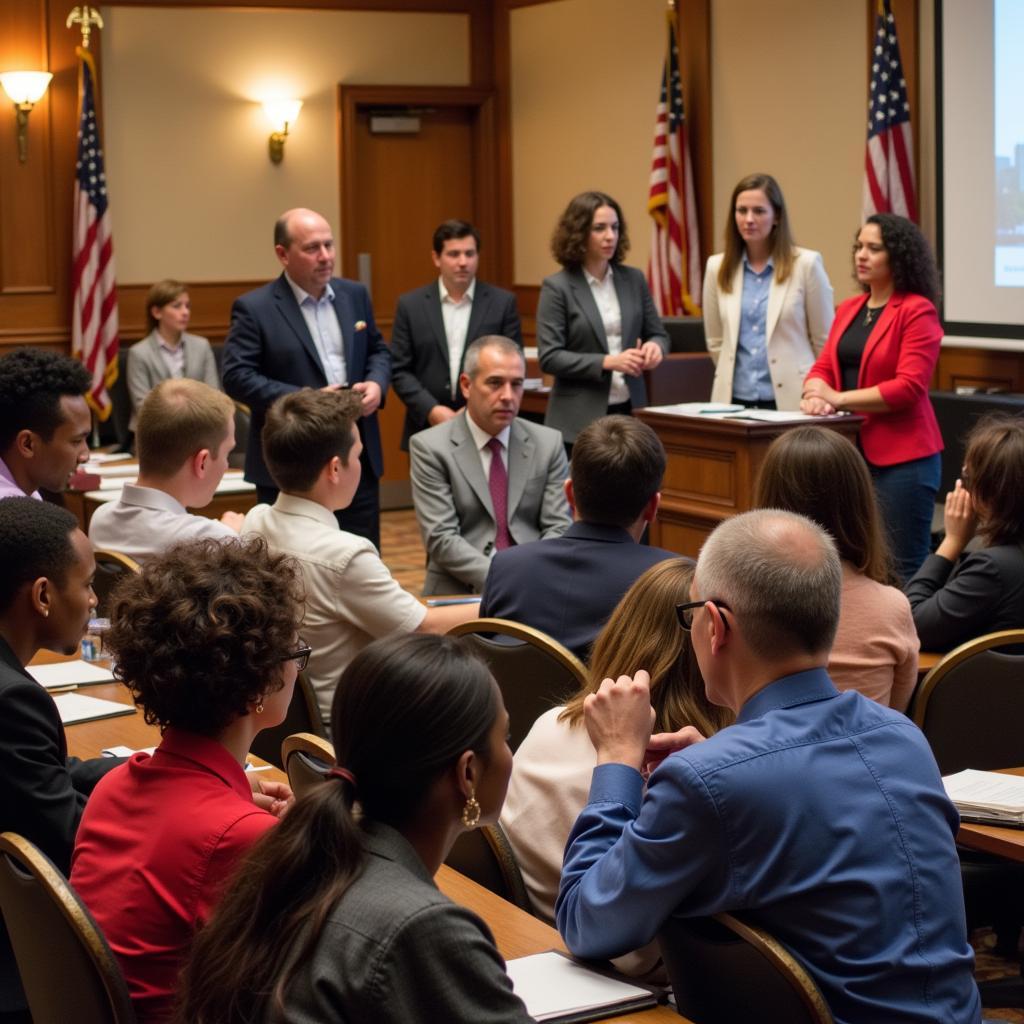African American Reparations Definition
African American Reparations Definition encompasses the various proposals for compensating descendants of enslaved Africans in the United States for the historical injustices and ongoing harms of slavery and its enduring legacy. This complex issue addresses the systemic inequalities that continue to affect Black Americans today, including disparities in wealth, education, housing, and healthcare. Understanding the core definition of reparations requires exploring the historical context, the different forms reparations could take, and the arguments for and against its implementation.
Understanding the Historical Context of Reparations
The history of slavery and its aftermath is crucial to understanding the rationale behind reparations for African Americans. The brutal system of chattel slavery, which lasted for over two centuries, deprived millions of Africans of their freedom, humanity, and the fruits of their labor. Following the Civil War and the abolition of slavery, Reconstruction efforts to address the injustices faced by newly freed Black Americans were largely unsuccessful. Jim Crow laws, systemic discrimination, and racial violence continued to impede Black progress for generations, creating significant economic and social disparities that persist to this day. This historical context forms the basis for arguments in favor of reparations, emphasizing the need to acknowledge and address the lasting harm caused by slavery and its enduring legacy.
 African American Sharecroppers Post-Civil War
African American Sharecroppers Post-Civil War
Different Forms of Reparations
The term “reparations” can encompass a wide range of potential remedies. These proposals can be broadly categorized into direct financial payments, investments in Black communities, educational programs, and land redistribution. Direct financial payments would involve providing monetary compensation to individuals who can demonstrate descent from enslaved Africans. Investments in Black communities could take the form of funding for education, healthcare, housing, and business development. Educational programs could focus on teaching the history of slavery and its impact, as well as promoting racial reconciliation. Land redistribution, while less frequently discussed, aims to address the historical dispossession of Black landowners. Each of these forms of reparations has its own set of proponents and critics, and the debate over which approach is most effective and just continues.
Arguments For and Against Reparations
The debate surrounding reparations for African Americans is highly complex and involves a variety of perspectives. Proponents argue that reparations are necessary to address the historical injustice of slavery and its ongoing impact on Black Americans. They point to the persistent racial wealth gap, disparities in education and healthcare, and the continuing effects of systemic racism as evidence of the need for reparative measures. Critics, on the other hand, raise concerns about the practicality and fairness of implementing reparations. They question how reparations would be distributed, who would be eligible, and whether such measures would truly address the underlying issues of racial inequality. Some also argue that current generations should not be held responsible for the actions of past generations.
 Reparations Debate Town Hall Meeting
Reparations Debate Town Hall Meeting
What are the legal implications of African American reparations?
The legal implications of African American reparations are substantial and complex, involving constitutional law, historical precedent, and international legal frameworks. Exploring existing legal scholarship and considering the potential legal challenges and avenues for pursuing reparations is crucial.
How does the concept of reparations relate to restorative justice?
The concept of reparations aligns closely with the principles of restorative justice, which emphasizes repairing harm caused by wrongdoing. In the context of African American reparations, restorative justice focuses on acknowledging the historical injustices of slavery and its legacy, and seeking to repair the harm done to individuals and communities. This approach emphasizes the need for dialogue, reconciliation, and addressing the root causes of racial inequality.
 African American Family Tracing Genealogy
African American Family Tracing Genealogy
Conclusion
The definition of African American reparations encompasses a wide range of proposals aimed at addressing the historical injustices and ongoing harms of slavery and its legacy. Understanding this complex issue requires examining the historical context, the different forms reparations could take, and the arguments for and against its implementation. While the debate surrounding reparations continues, the core definition remains focused on achieving justice and equality for descendants of enslaved Africans in the United States. The pursuit of reparations represents an ongoing struggle for recognition, redress, and reconciliation.
FAQ
- What is the main goal of African American reparations? To address the historical injustices and ongoing harms of slavery and its legacy.
- What are some examples of proposed forms of reparations? Direct financial payments, investments in Black communities, educational programs, and land redistribution.
- What are some of the arguments against reparations? Concerns about practicality, fairness, and intergenerational responsibility.
- How does the history of slavery inform the reparations debate? It provides the context for understanding the lasting impact of slavery and the need for reparative measures.
- What is the connection between reparations and racial justice? Reparations are seen by many as a necessary step towards achieving racial justice and equity.
- What are the different viewpoints on who should be eligible for reparations? Some argue for direct descendants of enslaved people, while others propose broader eligibility based on racial identity.
- What is the role of education in the reparations discussion? Education is crucial for understanding the history of slavery, its impact, and the arguments for and against reparations.
Scenarios
- Scenario 1: A descendant of enslaved people seeks information about their eligibility for potential reparations programs.
- Scenario 2: A community organization explores different models for reparations and their potential impact on local development.
- Scenario 3: A policymaker researches the legal and economic implications of implementing a national reparations program.
Further Reading
- Explore articles on the history of slavery in the United States.
- Learn more about the different proposed models for reparations.
- Research the ongoing legal and political debates surrounding reparations.
If you need assistance or have any questions, please contact us at:
Phone: +255768904061
Email: kaka.mag@gmail.com
Address: Mbarali DC Mawindi, Kangaga, Tanzania.
We have a 24/7 customer support team.

